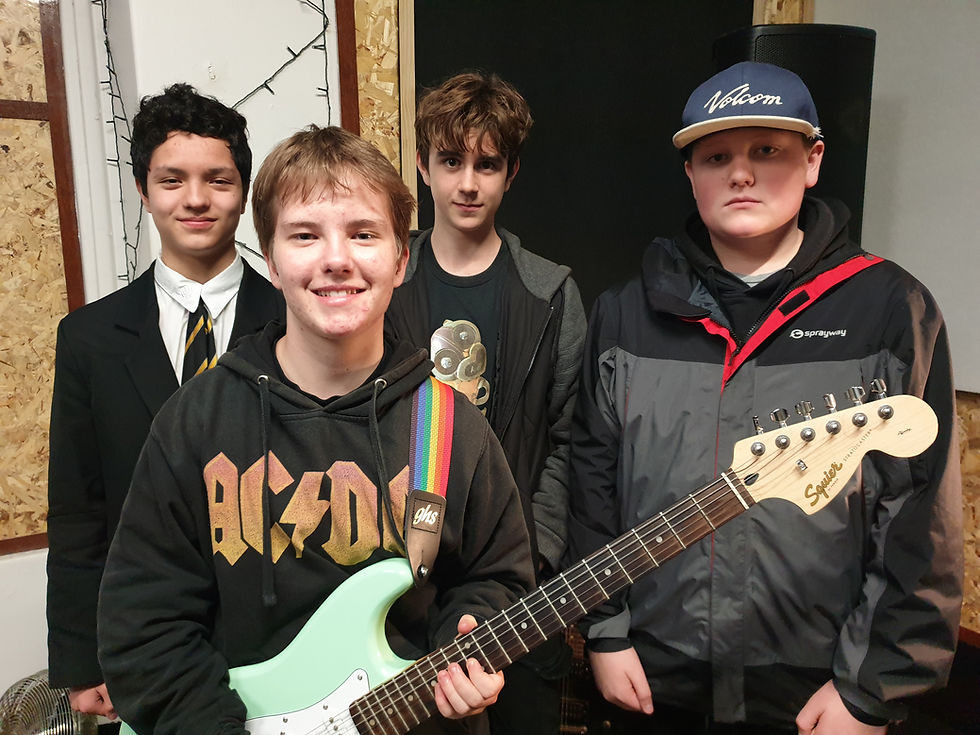The Lifelong Benefits of Learning Music at a Young Age
- Geoff Day
- Jun 14, 2023
- 3 min read

From soothing melodies to energizing beats, music has the power to captivate our hearts and minds. Beyond its sheer enjoyment, learning music at a young age offers numerous benefits that can shape a child's development and leave a lasting impact on their lives. In this blog, we will explore the multitude of advantages that come with embracing music during childhood, highlighting its cognitive, emotional, and social benefits.
Enhanced Brain Development: Learning music involves a complex interplay of various cognitive processes, including memory, attention, and problem-solving. Numerous studies have shown that children who learn music from an early age tend to have enhanced neural connections, particularly in areas associated with language and reasoning skills. These neurological adaptations can lead to improved academic performance across multiple disciplines, as well as heightened creativity and critical thinking abilities.
Academic Excellence: Music education has a positive correlation with academic achievement. The discipline required to learn an instrument or understand musical theory helps children develop essential study habits, perseverance, and time management skills. Moreover, the structured nature of music education contributes to improved spatial-temporal skills, which are crucial for mathematics and science comprehension. Students who engage in music also tend to score higher on standardized tests and have a greater propensity for higher education.
Emotional and Psychological Well-being: Music has a profound impact on our emotions, and learning music at a young age provides children with a valuable outlet for self-expression and emotional development. Playing an instrument or singing in a choir fosters emotional intelligence, self-confidence, and self-discipline. Moreover, music can serve as a therapeutic tool, helping children manage stress, anxiety, and other emotional challenges they may face. Through music, children develop a sense of identity and find solace in the midst of life's ups and downs.
Improved Motor Skills and Coordination: Learning to play an instrument involves the fine-tuning of motor skills, leading to enhanced hand-eye coordination, finger dexterity, and overall motor control. Whether it's pressing piano keys, plucking guitar strings, or manipulating drumsticks, the physicality of playing an instrument contributes to the development of precise movements and refined motor skills. These motor skills can extend beyond music and prove beneficial in activities such as sports, dance, and daily life tasks.
Social and Interpersonal Skills: Music education often takes place in group settings, such as school bands, orchestras, or choirs. By participating in these collaborative environments, children learn the value of teamwork, cooperation, and communication. They develop the ability to listen, adapt, and synchronize with others, fostering a sense of community and building lifelong friendships. Furthermore, music provides a universal language that connects people from diverse backgrounds, promoting cultural appreciation and empathy.
Discipline and Goal Setting: Learning music requires discipline, patience, and consistent effort. Regular practice and setting goals help children understand the importance of perseverance and dedication. As they strive to master an instrument or piece of music, they learn the value of hard work, setting priorities, and managing time effectively. These qualities lay a foundation for success in all aspects of life, instilling resilience and a growth mindset.
Conclusion: The benefits of learning music at a young age extend far beyond the realm of melodies and harmonies. From nurturing cognitive abilities and academic success to fostering emotional well-being and social skills, music education offers a holistic development experience for children. By embracing music from an early age, we empower children to embark on a lifelong journey of self-expression, creativity, and personal growth. Let us encourage and support the integration of music into the lives of young learners, opening doors to a world of endless possibilities.







Comments